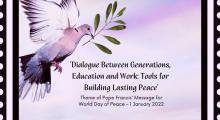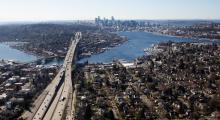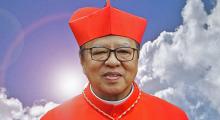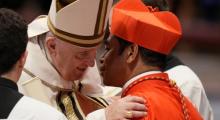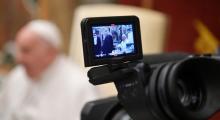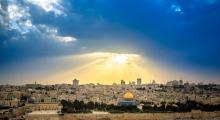Issued by the Catholic Center for Studies and Media - Jordan. Editor-in-chief Fr. Rif'at Bader - موقع أبونا abouna.org
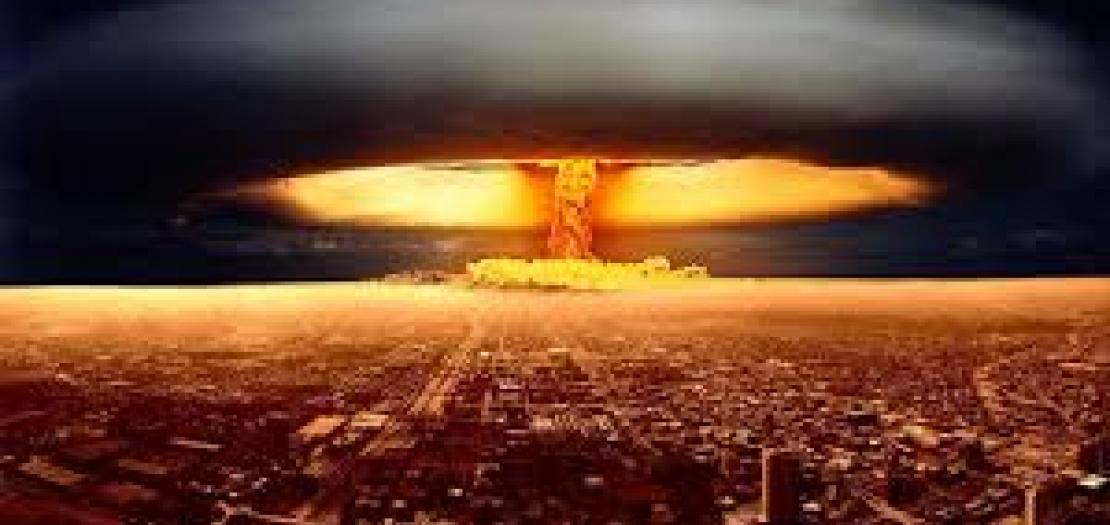
The Pope at the Pontifical Academy of Sciences presents himself as the “advocate of the peoples that receive only rarely and from afar the benefits of vast human knowledge and its achievements”.
“May I be able to thank God, as did Saint John Paul II in his Testament, that in my Pontificate the world was spared the immense tragedy of an atomic war!” to the participants in the plenary assembly of the Pontifical Academy of Sciences, Pope Francis presents himself as the “ advocate of the peoples that receive only rarely and from afar the benefits of vast human knowledge and its achievements, especially in the areas of nutrition, health, education, connectivity, well-being and peace” and denounces the lack of will and political determination to halt the arms race and to put an end to wars, in order to pass urgently to sources of renewable energy, programmes aimed at ensuring water, food and health for all, and investing for the common good the enormous capital that remains inactive in fiscal paradises”.
“Following in the footsteps of my predecessors, I reaffirm the fundamental importance of commitment to a world without nuclear arms, and I ask – as did Saint Paul VI and Saint John Paul II – that scientists actively cooperate to convince government leaders of the ethical unacceptability of such weaponry, because of the irreparable harm that it causes to humanity and to the planet. Consequently, I too reaffirm the need for a disarmament which today seems a subject less and less raised at the tables around which great decisions are made” the Pope said. “May I be able to thank God, as did Saint John Paul II in his Testament, that in my Pontificate the world was spared the immense tragedy of an atomic war”.
Global changes, then, “ are increasingly influenced by human actions. Hence there is also a need for adequate responses aimed at protecting the health of the planet and its inhabitants, a health put at risk by all those human activities that employ fossil fuels and deforest the planet. Just as the scientific community has made progress in identifying these risks, it is now called to propose workable solutions and to convince societies and their leaders to pursue them. In this regard, I am aware that in your sessions you have identified the insights that emerge from basic science and have worked to link them with strategic visions aimed at studying the problems in depth. It is your calling to come up with innovative developments in all the principal disciplines of basic science and to acknowledge the boundaries between the various scientific sectors, particularly in physics, astronomy, biology, genetics and chemistry”.
“This is part of the service that you render to humanity. I welcome - Jorge Mario Bergoglio continued- the fact that the Academy also concentrates on the new knowledge necessary to confront the scourges of contemporary society. The world’s peoples rightly ask to take part in forming their own societies. The universal rights we proclaim must become reality for all, and science can contribute decisively to this process and to breaking down the barriers that stand in its way. I thank the Academy of Sciences for its valued cooperation in combating the crime against humanity that is human trafficking for the sake of forced labor, prostitution and organ trafficking”.
“ I stand at your side in this battle for humanity. There is a long way to go towards a development that is both integral and sustainable”, the Argentine Pontiff said. “The elimination of hunger and thirst, high levels of mortality and poverty, especially among the eight hundred million needy and excluded of our earth, will not be achieved without a change in our way of living. In the encyclical Laudato Si’, I presented some key proposals for attaining this goal. Nonetheless I believe I can say that there is a lack of will and political determination to halt the arms race and to put an end to wars, in order to pass urgently to sources of renewable energy, programmes aimed at ensuring water, food and health for all, and investing for the common good the enormous capital that remains inactive in fiscal paradises”.
With the scientific think tank of the Vatican, Francis noted that “The scientific world, which in the past tended to assert its independence and self-sufficiency, and to show a certain distrust vis-à-vis spiritual and religious values, seems today instead to be increasingly aware of the ever more complex reality of the world and of the human being” and insisted on several occasions on the need to place the needs of “peoples” at the center of the reflection: “ The splendid ivory tower security of early modern times has given way, in many, to a salutary unrest, for which today’s scientists are more easily open to religious values and can glimpse, beyond the achievements of science, the richness of the spiritual world of peoples and the light of divine transcendence” the Pope said: “ You, dear scientists and friends of science, have been entrusted with the keys of knowledge. I would like to stand before you” the Pope continued, “as the advocate of the peoples that receive only rarely and from afar the benefits of vast human knowledge and its achievements, especially in the areas of nutrition, health, education, connectivity, well-being and peace”.
“Allow me to say to you in their name: may your research benefit all, so that the peoples of the earth will be fed, given to drink, healed and educated; may political life and economy of peoples receive from you indications on how to advance with greater certainty towards the common good, for the benefit especially of the poor and those in need, and towards respect for our planet. This is the immense panorama that opens up before men and women of science when they take stock of the expectations of peoples: expectations animated by trusting hope, but also by anxiety and unrest”.
In introduction to the Pope’s audience, former president Werner Arber (who replaced the current president Joachim von Braun, who was absent for health reasons), recalled that the plenary session that opens today and ends on Wednesday, entitled “Transformative roles of science in society: from emerging science to solutions for people’s well-being”, also intends to address the issue of trust in science: “The loss of confidence in science would jeopardize the incisive ability of science and its ability, moving from science to technological innovation, to help transformation for the better. But trust in science cannot only be claimed, it must be earned through responsible scientific behaviour, ethics and transparency”.


